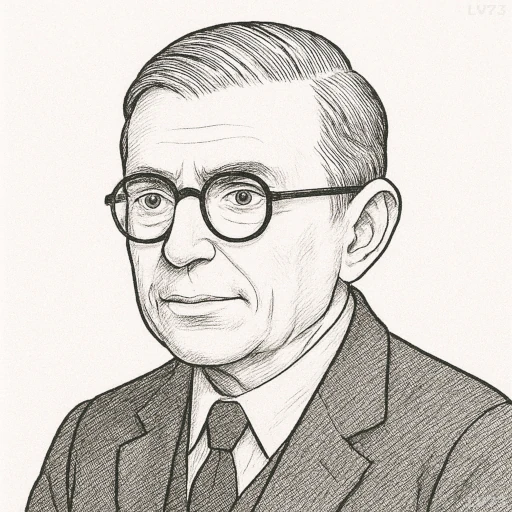“Who can exhaust a man? Who knows a man’s resources?”

- June 21, 1905 – April 15, 1980
- Born in France
- Philosopher, novelist, playwright
table of contents
Quote
“Who can exhaust a man? Who knows a man’s resources?”
Explanation
In this quote, Sartre reflects on the resilience and untapped potential within each individual. The questions “Who can exhaust a man?” and “Who knows a man’s resources?” suggest that a person’s capacity for endurance, creativity, and self-definition is virtually limitless. Sartre is emphasizing that there is always more to a person than meets the eye, that the human spirit and willpower have an inherent depth that cannot be fully understood or predicted by others. This statement underscores the existential belief that, as long as a person remains free and conscious, they are capable of continuously redefining themselves and finding new reserves of strength, even in the face of hardship.
Sartre’s philosophy often centers on the idea that humans are not bound by their past, by societal roles, or by external expectations. The individual’s freedom and ability to act provide them with an infinite number of possibilities, even when they are faced with adversity. The resources of a person are not finite; they are constantly being created and re-imagined through choices and actions. This connects to his idea that existence precedes essence—meaning we are not limited by any fixed definition of who we are or what we can become.
In the modern context, this quote resonates with the human capacity to face personal challenges, overcome adversity, and transform one’s life, regardless of difficult circumstances. Whether in the face of mental health struggles, social inequality, or economic hardships, this quote suggests that no matter how difficult life becomes, a person’s potential and resilience are not easily exhausted or defined. Sartre’s insight encourages us to recognize our own strengths and resources, and to remember that the true measure of a person is not in their limitations but in their ability to continue creating and acting, even when the world around them seems overwhelming.
Would you like to share your impressions or related stories about this quote in the comments section?
